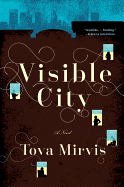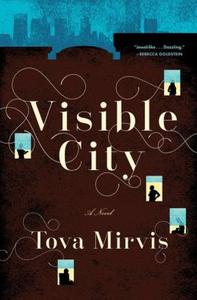

Nina moves through Manhattan streets from one park to the next, children in tow, talking to other mothers who all keep insisting this time is so "precious," these babies so "delicious" they wouldn't want to be anywhere else. Except maybe at the shrink's trying to find out why they are so miserable.
Nina and several other of Tova Mirvis's characters carom off each other, intersecting in amazing ways, some personal and intimate, some more incidentally. Though they are at different stages of life, they have each and all made promises to people, to work and to themselves that require enormous effort and loyalty to keep. Sometimes blossoming desire gets in the way; the temptation to look for that stained-glass window or that ghost station--yes, these are among the plot threads--might mean the end of a good job or even a marriage. But it could also mean a new path to something more compelling than their current everyday life.
Mirvis (The Outside World) takes the reader along as these disparate people start asking questions about what's next in their lives. Can they keep faith with the decisions they made as 20-somethings, stay the professional course through the next decade and, most interesting, now that one couple approaches their 60s, do any of the same rules apply?
Such is Mirvis's finesse and insight that she leaves the reader completely sympathetic with each character's dilemmas. She shows us not what is seen at the grocery store or walking with friends; rather, we see their illuminated interiors, who they were and who they might be again. What happens when ordinary people begin to weigh the cost of change? Are stability and commitment more desirable than change? Visible City is a beautifully rendered novel that takes on art, parenting, betrayal and the nature of love. --Valerie Ryan
Shelf Talker: Three couples' lives intersect and sometimes collide in this examination of the consequences of choices made and then re-examined.

